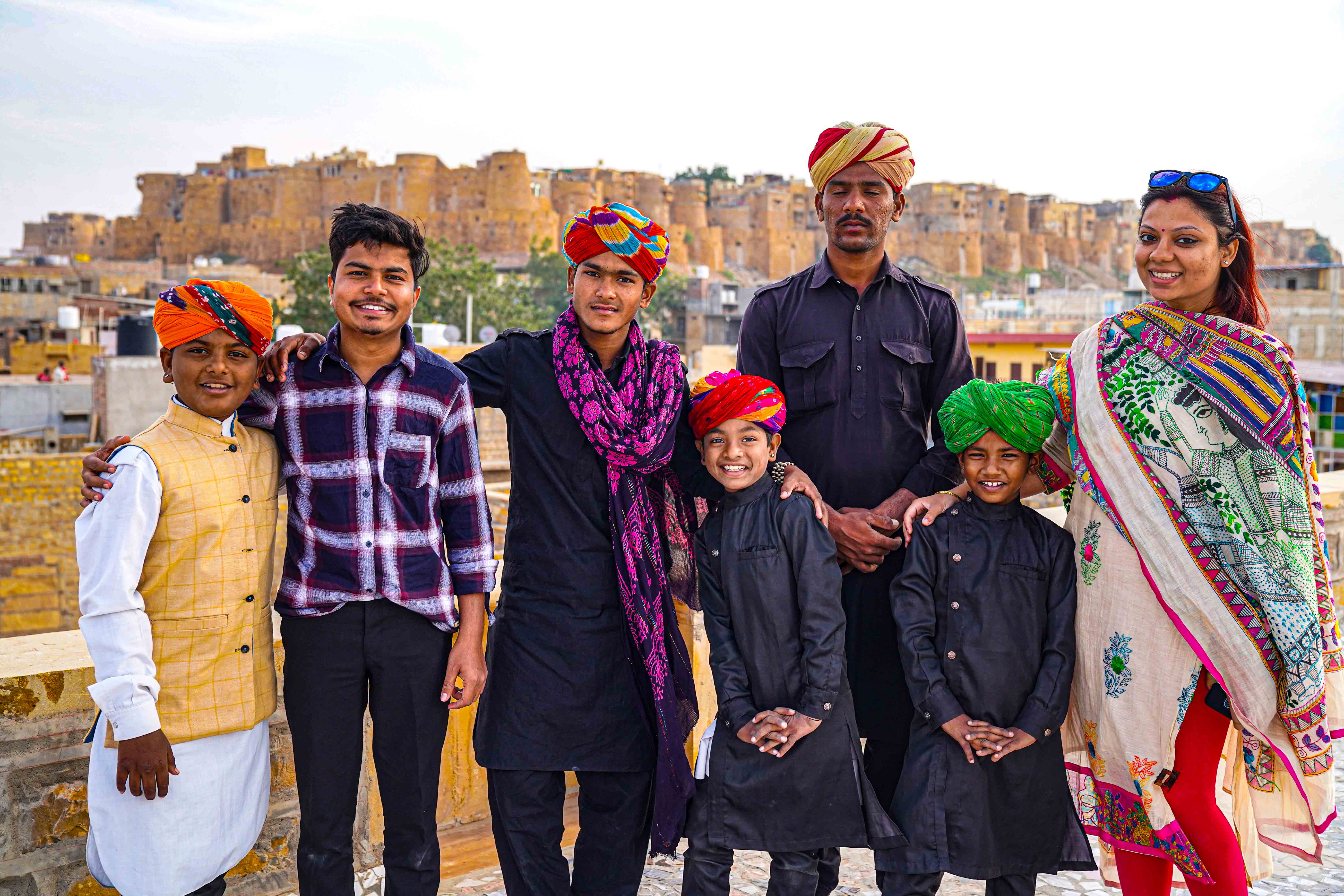
A chorus of village boys celebrates their musical heritage in a joyous production that challenges the rigid modern education system that threatens their traditions.
Jaisalmer Boys are a young group of child artists and musicians who are still in the beginning phases of their lives as they embark upon a path taken by almost every person living in their community. These children have already gained a substantial amount of experience in music but are still at a learning stage in their quest to master the art only due to their youthful school-going age. Not only have they developed a brilliant vocal ability, but they have also set themselves on the way toward mastering various traditional instruments.
They sing songs that are traditional to their community, the Manganiyars. Their culture has brought these young individuals together as they play the traditional instruments of Rajasthan and learn all the skillsets and knowledge required in the field of classical and folk music. Dhol, Khartal and Harmonium are some of the common instruments that are a part of their area of expertise.
The children, some of whom are as young as eight, make up the cast of Jaislamer Boys – a buoyant, energetic group showcasing the music of the Manganiyar people, a community of Muslim musicians from Sindh, Pakistan, and Rajasthan, India. They are the keepers of distinctive musical traditions that include vocal acrobatics, percussion and a variety of instruments, which for a long time were supported by aristocratic patronage.
These young kids have been aspiring about becoming artists in the field of music from such an early stage. This is what sets them apart from most folk music communities and groups from the state. They do what they are passionate about and want to discover the professional aspect of it as well.
“Life is a struggle unless you really make it. But here we’re talking about a whole community, a whole tribe of musicians. Where is the place for them to flourish?” says the eldest of them all.
One would think they are just like any other children and the innocence in their eyes does not reveal their talent. It is when they start singing together then one realises that these little bundles of joy have mastered this art of transporting you to a magical land.
The influence of the market, which is not kind to things like tradition or heritage, coupled with the inflexibility of their children’s schooling, means the Manganiyar musical traditions are under threat. After listening to them, one realises deeply that it is essential to look after these traditions because it’s not something that you have in every other part of the world, it is a treasure we need to look after.”
They are a lovely bunch of talented and mischievous kids. One has a lot of fun working with them. But the whole point is to give them and many more like them in the villages of Rajasthan a better life. The idea is to give them choices and chances. We want to give them better infrastructure and more exposure, so they can really go places. The people from this community are blessed, in a way, and their talent shouldn’t go to waste. If you are a child born in a city with affluent parents, your parents would make sure to avail you of the best possible path. But, if you are a Manganiyar child, it can be possible that you are super talented and yet there are no avenues. They can’t go anywhere and in helplessness, they resort to odd jobs.
Manganiyars are a part of our splendid history and the painful realisation that despite their contribution to music, these carriers of a great tradition have so far remained unnoticed, forgotten to be included in the programmes of ‘progress’. But when the children perform, they make us believe that there is still hope for a better world. They are just so full of life and they have immense talent. Their music gives a lot of joy and it gives a lot of joy to the whole world. All they need is a good direction towards providing them with a better lifestyle without having to give up this hereditary art form in order to earn enough to survive.
